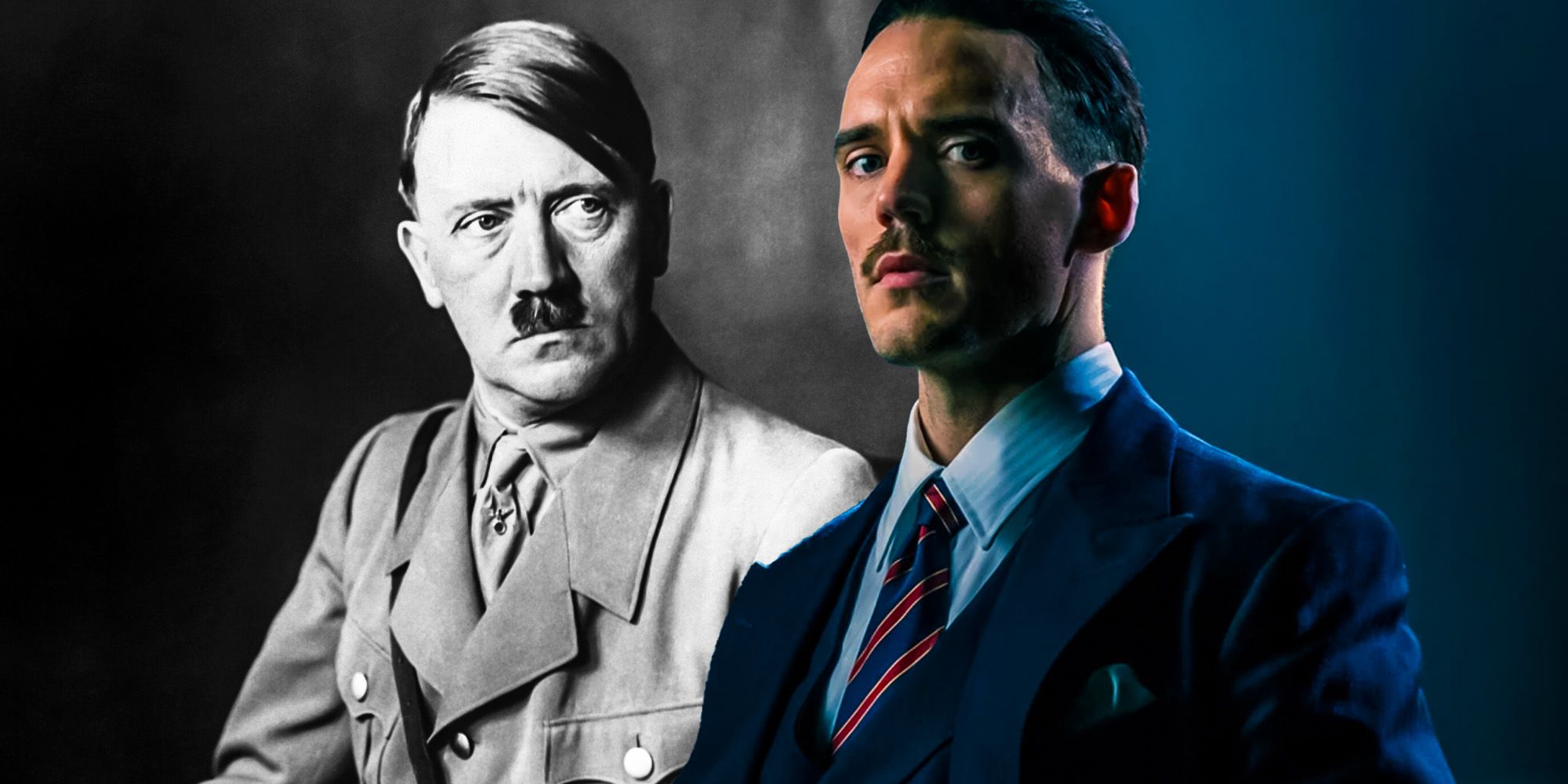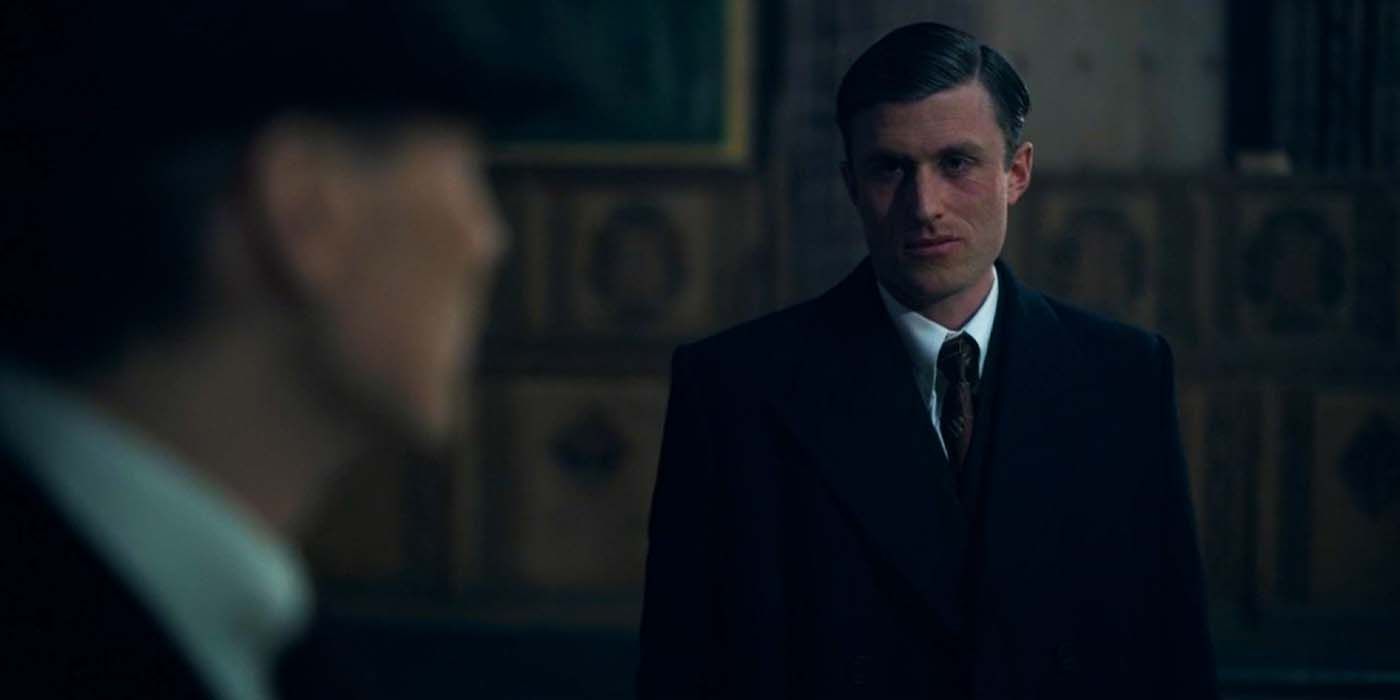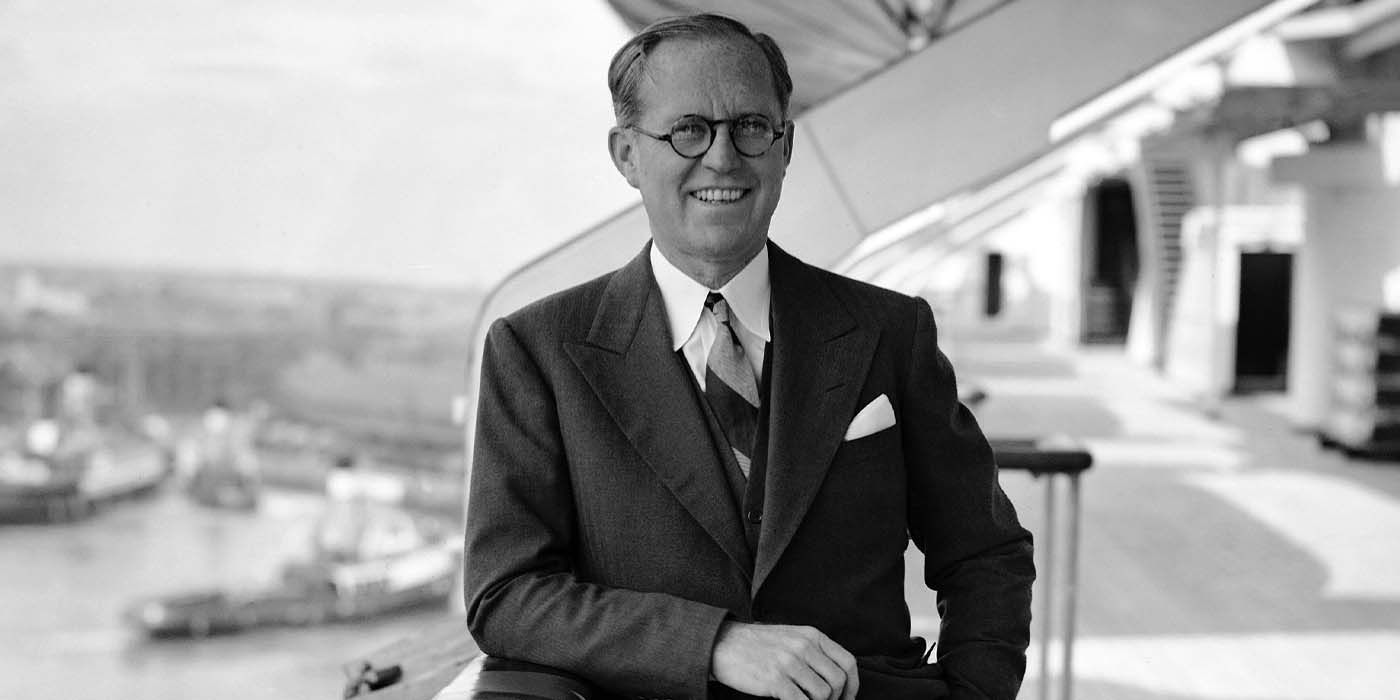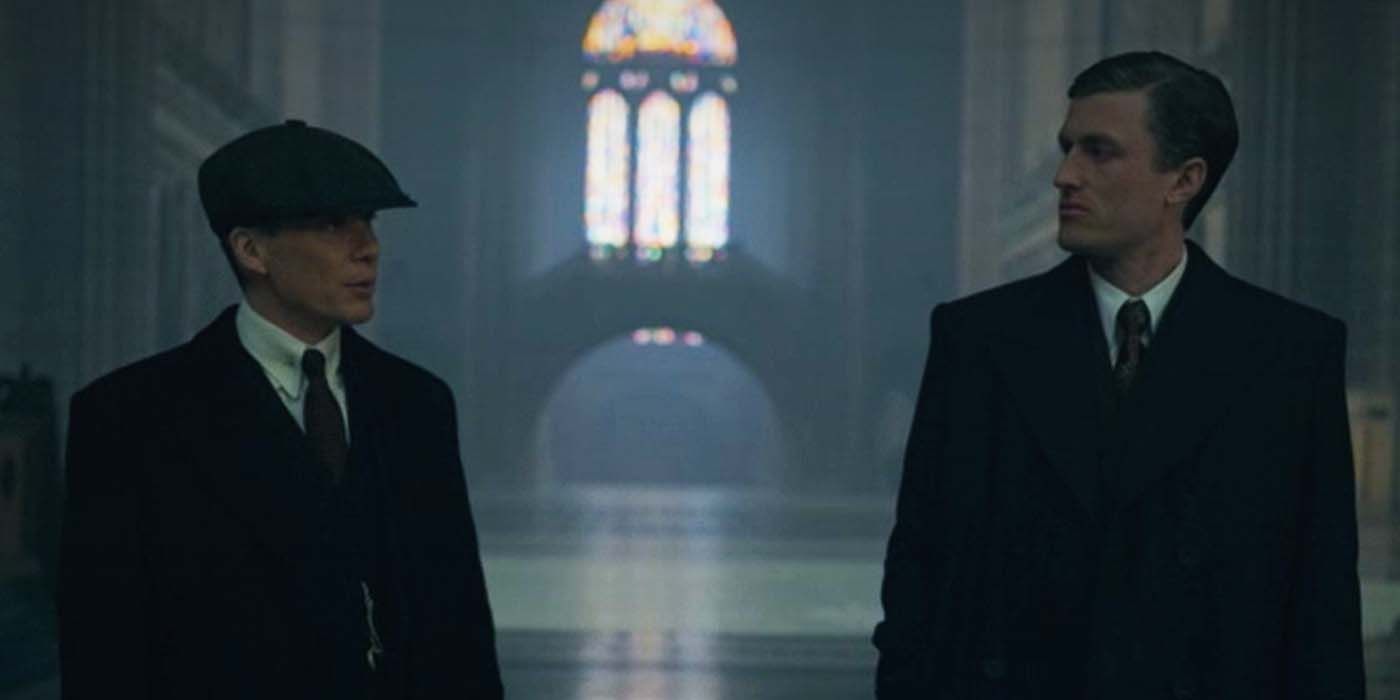Netflix's Peaky Blinders follows gang leader Thomas Shelby in his attempts to move up in the world in post-World War I Britain, but how close did America really come to allying with Hitler during this time? While the series is mainly ahistorical, many of the characters showcased in Peaky Blinders are based on actual historical figures. Peaky Blinders season 6, for example, introduces a new antagonist, Jack Nelson (James Frecheville), a character based on an influential historical figure.
While Peaky Blinders' Jack Nelson is a Boston gang leader, he is based on American politician Joseph Kennedy Sr., the father of President John F. Kennedy. Like Jack Nelson, Joseph Kennedy Sr. was a close associate of President Franklin D. Roosevelt with political ambitions and controversial views. However, unlike Nelson, he was not involved in crime, but there is historical evidence that he was engaged in financial dealings that eventually became illegal, such as insider trading on Wall Street.
Most American accounts of World War II portray the United States as a champion of human rights and the world leader in the fight against Nazi persecution; however, in reality, America's political situation was complex and nuanced in the years between WWI and WWII. Jack Nelson's antisemitism and pro-Nazi views in Peaky Blinders imply that not all Americans were against Naziism at the time, and this truth stretched among even the nation's most powerful and influential figures. As Peaky Blinders suggests, in the years before World War II, Americans were not united in their views on Nazi Germany or U.S. involvement in the war. There was potential for the United States to adopt a pro-Nazi stance, and history could have gone in a different direction. Here's how close America came to allying with Hitler in real life, and how much Peaky Blinders gets right regarding this true historical story.
Why Jack Nelson Is Sent To Investigate Naziism In Europe
In Peaky Blinders season 6, Jack Nelson travels to the UK with his wife, his mistress, President Franklin D. Roosevelt's son, and Gina to secure U.S. import licenses to the best Scottish and Irish whisky distilleries. However, he is also there on behalf of President Franklin D. Roosevelt, a close associate, to collect information regarding support for fascism in the UK. Peaky Blinders' new villain, Jack Nelson, is a man with his own political ambitions, making it beneficial for him to serve as the president's confidante. Roosevelt would likely be interested in information about the popularity of fascism in Britain to gauge their European ally's political situation and as an aid in determining America's course of action.
Who Is Jack Nelson Based On - Is He A Nazi?
Jack Nelson is based on American politician Joseph Kennedy Sr., the father of President John F. Kennedy. Although Kennedy was certainly not a gangster like Nelson, he was also a Boston native with questionable morals. Kennedy was not a Nazi, but he was a supporter of fascism and a Nazi sympathizer, just like his Peaky Blinders character. Kennedy, in his paranoia, believed Jewish people were influencing American culture and politics in a corrupt and malevolent manner, and while serving as ambassador to the UK, Kennedy was vocal about his controversial views. In 1939, he told a British reporter that the Democratic Party of the United States was "a Jewish production" and that Roosevelt would fall in 1940. Additionally, in 1940 Kennedy expressed to the Boston Sunday Globe, “Democracy is finished in England. It may be here.” Because of his antisemitism and public denouncements of democracy, Kennedy was forced to resign from his ambassadorship in 1940 just weeks after President Roosevelt was elected.
Peaky Blinders True Story: Joseph Kennedy's Real History Explained
Like the true story behind Peaky Blinders character Diana, the mistress of Oswald Mosley, Jack Nelson's character is also inspired by an equally compelling true historical tale. On September 6, 1888, Joseph Kennedy was born into an Irish American family in Boston, Massachusetts. After graduating from Harvard University in 1912, he became the country's youngest bank president at age 25. Kennedy became a multimillionaire earning enormous amounts of money in finance and real estate. During World War I, he managed the production of transports and warships, which led to his close relationship with President Franklin D Roosevelt. Roosevelt appointed Kennedy as Chairman of the U.S. Maritime Commission and later as the ambassador to the United Kingdom from 1938 until 1940.
Like the Peaky Blinders villain, Jack Nelson, Joseph Kennedy was also intent on corresponding with prominent German politicians in the Nazi regime. Following his appointment as ambassador to the United Kingdom by President Roosevelt in 1938, Kennedy met with the new German Ambassador to the Court of St. James, Herbert von Dirksen, several times without approval from the US state department. In one of these meetings, he informed von Dirksen that President Roosevelt was the victim of "Jewish influence.” When Germany invaded Poland in 1939, initiating World War II, Kennedy also publicly advised President Roosevelt not to support Britain in the war against Nazi Germany.
His isolationist views, antisemitism, and support for fascism ruined his political career. After Roosevelt's triumph in the 1940 election, Kennedy resigned from his ambassador position, and his relationship with Roosevelt ceased. He never held another significant appointment. When Joseph Kennedy’s son, John F. Kennedy, decided to run for Congress in 1946, Kennedy Sr. stopped pursuing his own hopes for elected office. Instead, he put his power and resources towards supporting his son’s political career.
How Close The U.S. Was To Working With Hitler
In the early 20th century, as Peaky Blinders suggests, overt antisemitism was present at all levels of American society. Many influential figures publicly blamed Jewish people for America’s issues, and elite universities such as Harvard, Yale, and Princeton authorized anti-semitic policies, including quotas on the number of Jewish students admitted. In the years leading up to World War II, antisemitism manifested in the isolationist movement. At the height of isolationism’s popularity, the isolationist group, the America First Committee, had over 800,000 members from all regions of the country, including well-known public figures such as Walt Disney and Gerald Ford.
Peaky Blinders' compelling characters and poignant portrayal of the chaos, fear, and conflicting characteristics of the times bring much-needed attention to these lesser-known and often shocking aspects of America's pre-World War II history. Yet while many isolationists were anti-semitic, the movement’s efforts largely were focused on keeping the U.S. out of the war in Europe rather than becoming stanch political bedfellows with Nazi Germany - and by May and June of 1940, America’s political situation had changed significantly. The United States had initially assumed their European allies, who had greater resources and larger populations, would easily suppress Germany’s aggressions, but Hitler’s forces initially won unprecedented victories, and Germany took over western and central Europe, posing a substantial threat to America’s allies. Debates around U.S. war policy came to a complete halt on December 8, 1941, the day after Japan’s attack on Pearl Harbor, and the America First Committee disbanded soon after as the United States officially joined World War II.





